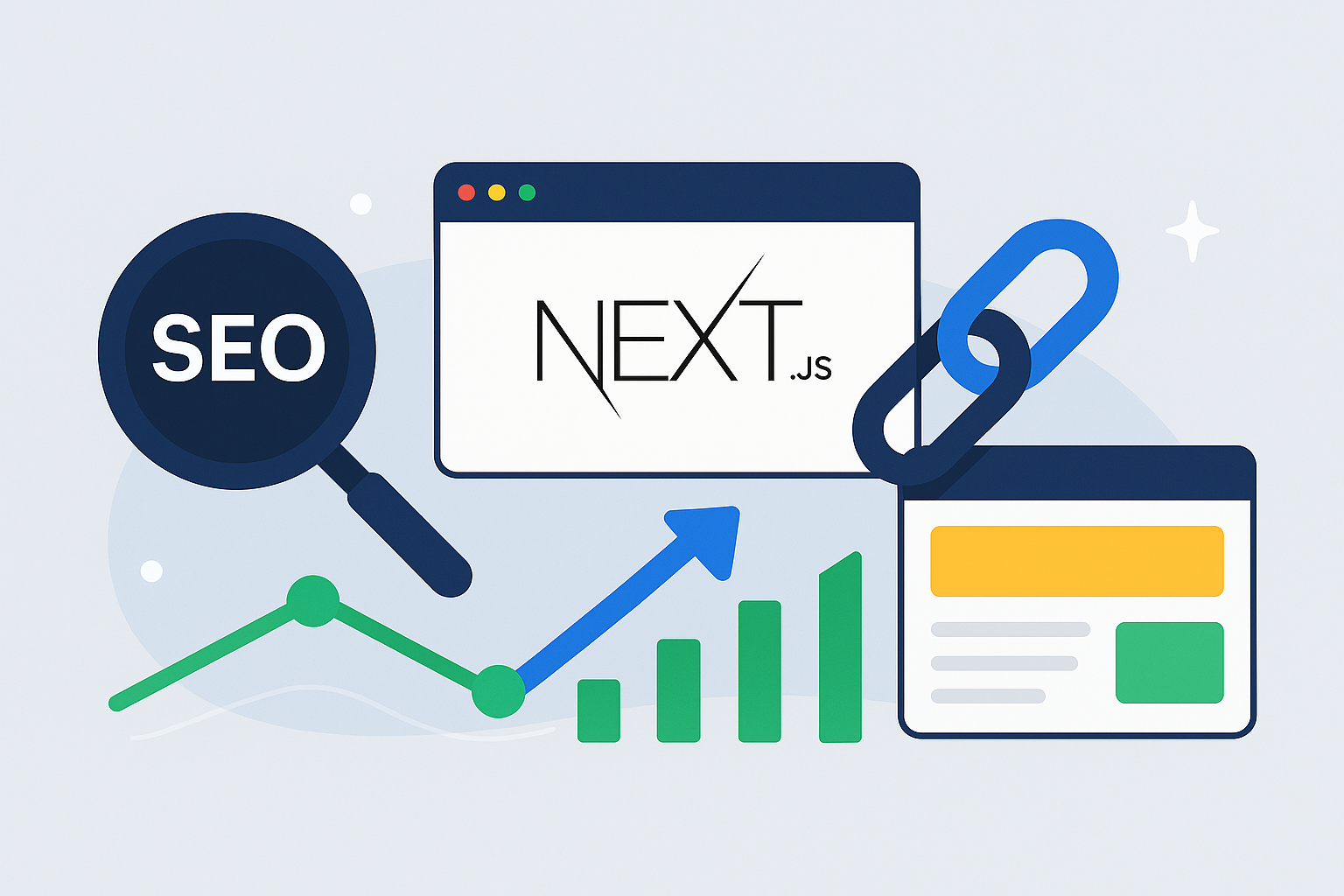How to Use Backlinks to Improve SEO Performance on Next.js Websites

if you're building a website using Next.js, you may already be benefiting from server-side rendering (SSR), static site generation (SSG), fast page performance, and structured routing. These features provide a strong foundation for technical SEO — but technical SEO alone is not enough to rank highly in competitive search results.
One of the most influential ranking factors is backlinks. To elevate your Next.js website in Google’s search results, you need a strategic backlink acquisition plan. This article explains what backlinks are, why they matter, and how Next.js websites can utilize them effectively.
What Are Backlinks?
A backlink is a hyperlink from another website that points to your website. Search engines view these links as “votes” or recommendations.
When reputable sites link to your content, it signals to Google that your site is:
Trustworthy
Relevant
Valuable
The result?
Higher rankings and stronger brand authority.
Why Backlinks Matter for Next.js Websites
Even a perfectly optimized Next.js site needs backlinks to compete.
Key Benefits of Backlinks
| Benefit | Impact on Your Website |
|---|---|
| Higher rankings | More organic search visibility |
| Faster indexing | Google discovers new pages quickly |
| Referral traffic | Visitors come from external sites |
| Reputation building | Enhances authority in your niche |
Backlinks support your content beyond technical structure, helping your site rise above similar competitors.
How Next.js Strengthens Backlink Value
Backlinks are most effective when your site is easy for search engines to crawl and understand. Next.js helps with that.
| Next.js Feature | SEO Advantage |
|---|---|
| Server-Side Rendering (SSR) | Google receives fully rendered, indexable HTML |
| Static Site Generation (SSG) | Faster page speed → better rankings |
| Dynamic Routing | Clean URL structures improve crawlability |
| Metadata & Open Graph Support | Attractive previews increase link click-through rates |
In short: Next.js provides the foundation — backlinks provide the authority.
Effective Strategies to Build Backlinks to Your Next.js Site
1. Create Problem-Solving Content
Educational and helpful content naturally earns links. Examples:
Next.js tutorials
Deployment guides
SEO optimization walkthroughs
People link to content that helps them.
2. Write Comparison & Review Articles
Comparison content has high sharing potential:
Next.js vs React
Next.js vs Gatsby
Best Next.js frameworks and UI libraries
These attract discussion and backlinks across the developer community.
3. Guest Post on Industry Websites
Contribute articles to:
Medium (Tech Publications)
Dev.to
Hashnode
LinkedIn Articles
Include your backlink naturally in the author bio or within context.
4. Submit Your Project to Developer Platforms
List your site or tool on:
Product Hunt
GitHub awesome-lists
StackShare
Indie Hackers
These links are trusted and relevant.
5. Build Relationships in Communities
Join:
Discord developer communities
Reddit programming subreddits
Next.js / React Slack groups
Value-driven participation → collaboration → backlinks.
Backlinks to Avoid (To Protect Your Rankings)
Not all backlinks are beneficial. Avoid:
| Low-Quality Backlink Type | Risk |
|---|---|
| Spam blog comments | Can trigger spam penalties |
| Cheap “1000 backlinks” services | Usually link farms or PBNs |
| Links from irrelevant industries | Weakens overall authority |
| Keyword-stuffed anchor text | Appears manipulative |
Focus on real, credible, context-relevant mentions.
Conclusion
Next.js provides an outstanding foundation for SEO through performance, structured routing, and rendering flexibility. But to truly stand out and rank competitively, your website needs high-quality backlinks.
By publishing valuable content, engaging with communities, and forming meaningful collaborations, your backlink profile can grow naturally — leading to stronger rankings, more traffic, and greater online authority.